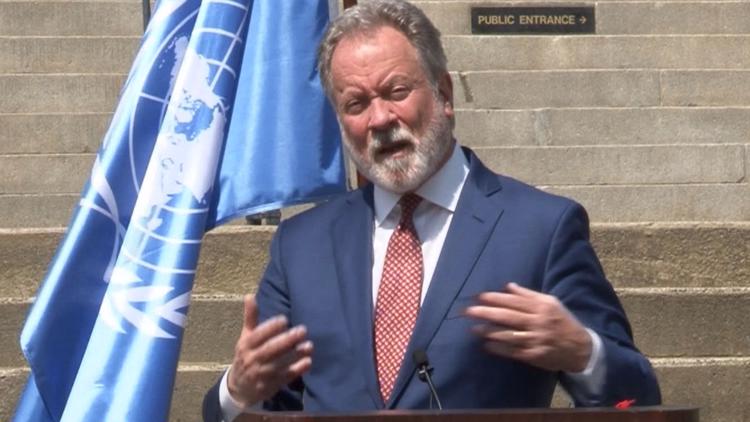ROME, Italy — The executive director of one of the world's top humanitarian organizations, who is also a past South Carolina governor, announced on Saturday that he will be leaving the role in the second quarter of 2023.
David Beasley, who currently heads the World Food Programme, said that the process to select a successor when his term ends in April 2023 has already begun.
"I look forward to working with the new Executive Director to deliver a seamless transition, and they will have my full support as they lead WFP forward," Beasley said in a statement shared by the organization.
Beasley said in the statement that it had been an honor to serve with the organization and the 23,000 men and women who work in it. He thanked them and United Nations Secretary-General António Guterres for allowing him the role.
However, he said the role also brought him, "the greatest joy and deepest heartache."
"Thanks to the generosity of governments and individuals, we have fed so many millions of people," he said. "But the reality is we have not been able to feed them all - and the tragedy of extreme hunger in a wealthy world persists."
Beasley said that he was asked in March of 2021 to stay on longer in the executive director position to help navigate the "perfect storm" of "conflict, climate change, COVID-19" that has been made worse by the work in Ukraine and rising food prices worldwide.
In addition to thanking those who worked with him during his time with the World Food Programme, Beasley also thanked those who still live in poverty and hunger - especially the children.
"They show an extraordinary strength, courage, and generosity of spirit the whole world needs to learn," he said. "They are an example to us all."
Beasley, who attended Clemson and the University of South Carolina, served as the governor of South Carolina from 1995 to 1999.
According to his biography, he went on to spend a decade working with program managers and high-profile leaders worldwide for about a decade, "directing projects designed to foster peace, reconciliation and economic progress," before coming to the World Food Programme in 2017.



